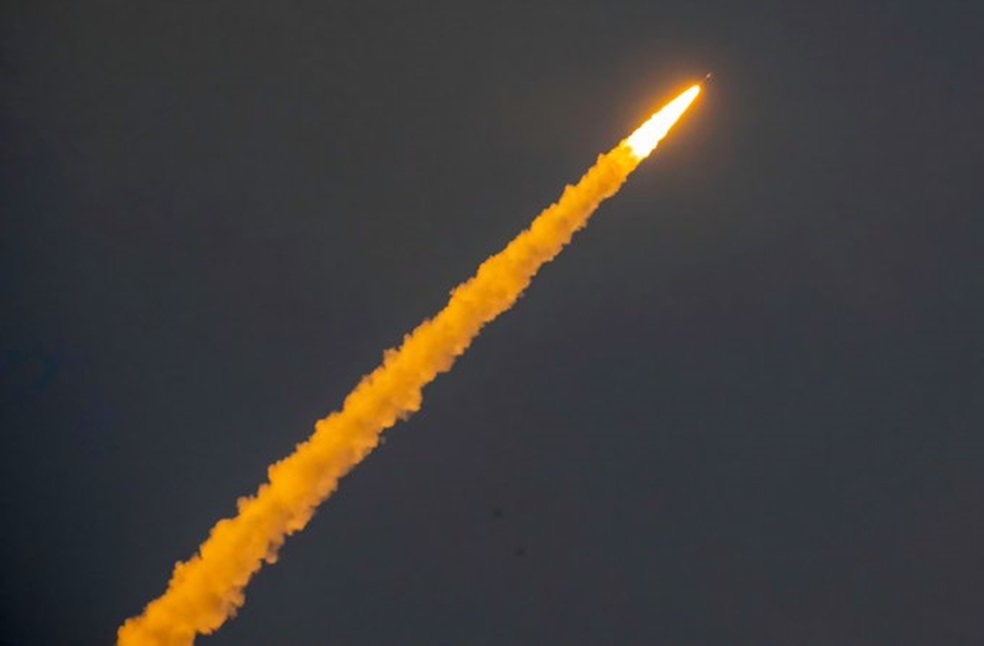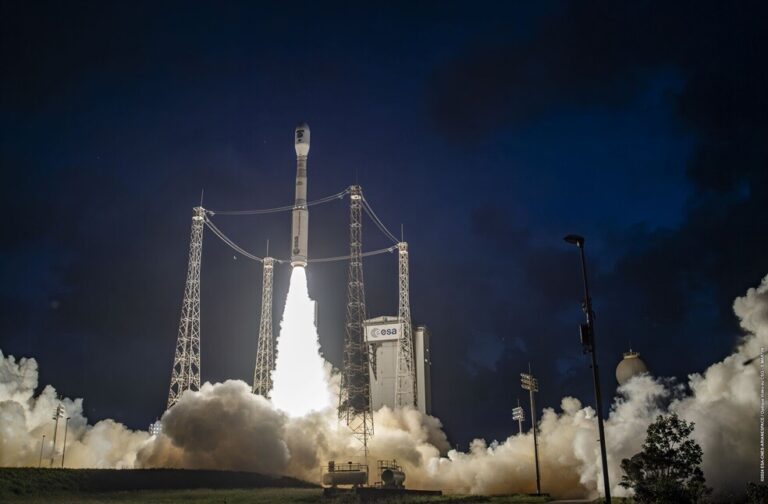French Guiana: Europe’s Arianespace has launched the Vega-C rocket, marking a triumphant return for the upgraded Italian launcher, which had failed during its debut commercial mission two years ago.
The rocket successfully carried the Sentinel-1C satellite into orbit for the European Union’s Copernicus Earth observation programme.
At 6:20 p.m. (2120 GMT) on Thursday, Vega-C blasted off from its launch pad at the Guiana Space Centre in French Guiana, soaring into leaden skies.
“Parameters on board are normal,” said Jean-Frederic Alasa, the range operations manager, confirming a smooth launch. Prior to reaching orbit, the satellite was placed into “barbecue mode” to manage its exposure to the sun’s heat during its journey into space.
The Vega-C launcher carrying @CopernicusEU #Sentinel1 C is now space-bound!
The rocket will place the satellite in a Sun-synchronous orbit at an altitude around 690 km.#VV25 pic.twitter.com/uvTyxQ7Rak
— ESA Earth Observation (@ESA_EO) December 5, 2024
The successful launch of Vega-C comes after a two-year hiatus following its predecessor’s failure during a commercial mission in 2022. The earlier Vega rocket failed shortly after liftoff due to a motor anomaly, causing the destruction of two Earth-imaging satellites. The failure led to a grounding of the entire Vega fleet.
The Vega-C rocket is part of Europe’s continued push to secure independent access to space, especially after Russia’s invasion of Ukraine halted the use of Russian Soyuz rockets for European missions.
Teodoro Valente, president of the Italian Space Agency (ASI), stated that, “An important day for Italy and for Europe. Vega-C is back!.”

The launch marks a significant step in Europe’s journey toward space autonomy, with Avio, the Italian manufacturer of Vega-C, set to take over marketing responsibilities in 2025.
The launch also highlights the ongoing competition with SpaceX, Elon Musk’s private US launch company, which continues to dominate the space sector.
With Ariane 6 also making strides with its inaugural test flight earlier this year, Europe’s space ambitions are slowly regaining momentum after setbacks. However, the commercial debut of Ariane 6 has been delayed to 2025, adding further pressure on European space programmes to regain their competitive edge.



